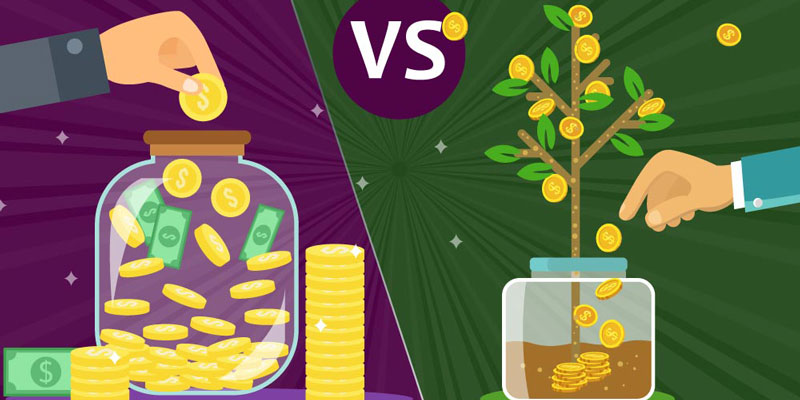Investors and other interested parties ('stakeholders') may be found in almost any company. There is some connection between these two groups, but they are quite the opposite. First and foremost, remember all shareholders are indeed stakeholders since their success is connected to the corporation. Stakeholders might also be successful as a result of the firm, but this does not necessarily mean that they are shareholders since they might not possess shares in the company. So, let's get on the shareholders vs. stakeholders debate.
What Exactly Is A Stakeholder?
In this context, "stakeholders" refers to both investors and other parties who rely on the company's success. However, a stakeholder's connection with a business could be more complicated than a shareholder's. Staff, suppliers, vendors, consumers, and even the general public may all be considered stakeholder groups. Financial returns may be the primary focus of certain stakeholders, but this is not always the case. Customers and governments both have a stake in a firm since they rely on tax revenue from businesses and their workers. It's possible for stakeholders to include members of the community (ies) in which a business works. An organization's new manufacturing or refining facility, for instance, may have unintended consequences on the local ecosystem. Since the plant has the potential to have negative effects on the residents' health, they are considered stakeholders.
What Is A Shareholder?

The opposite is true with shareholders, who are the owners of a company's stock. When planning for retirement, stock holdings are a common tactic because of the potential for long-term growth. Institutional investors might be driven by a variety of factors outside simple capital appreciation. The voting rights attached to common stock are one reason why large financial organizations could invest in the stock. The holders of preferred stock, which is a different kind of stock that may be issued by companies, are often still considered shareholders of such companies.
Salient Distinctions between Shareholders & Stakeholders
Even while shareholders and stakeholders may share certain concerns, they are not the same. Let's compare and contrast the two and see where they vary.
Company ownership
Every shareholder is a stakeholder, whereas not every stakeholder is a shareholder. When you own shares in a corporation, you are both a shareholder and a stakeholder. However, whether or not they own shares of stock in the firm, everyone who is impacted by the business might be called a stakeholder. So, the stakeholders vs. shareholders differences are clear as far as company ownership is concerned.
Priorities
Investors look just at the bottom line, but stakeholders care about how well the company does overall. In particular, common shareholders may use their voting power at shareholder conferences. The shareholder's incentive to vote is usually monetary, though. The primary motivation for the majority of investors when purchasing shares in a firm is financial gain. Even though shareholders often have a financial interest in a firm, this is not always the case with stakeholders. Workers are stakeholders even if they don't own stock in the firm. On the other hand, the company's financial health is directly linked to its employment stability. Many parties have a vested interest in a company's success, and their motivations may go beyond simple financial gain.
Long-term vs. short-term
When compared to stakeholders, shareholders tend to think more narrowly in the near term. When bad news about a firm is widely reported, investors' short-term thinking becomes obvious. When bad news hits the media, investors usually sell their shares immediately, causing the stock price to collapse. The corporation may be unaffected by the news report in the long run. Long-term thinking is typical among stakeholders. A corporation's employees, vendors, and distributors all have vested interests in keeping their working relationship with the business going strong for the foreseeable future. Stakeholders like stability since they may care less about day-to-day changes. As long as they can keep their current social or economic arrangements with the corporation in place, they may be content.
Competing Theories of Stakeholder vs. Shareholder Interests

Perspectives on shareholders & stakeholders illuminate the differences between the two constituencies. According to the shareholder concept, a company's only duty is to increase its profit at the expense of the shareholders. On the other hand, the theory of stakeholders posits that the interests of stakeholders, rather than those of the corporation, should take precedence. Investors sometimes pay attention to small changes in a stock's price rather than long-term trends. Investors may dump their shares if a firm isn't profitable. Despite losing their status as a shareholder in the original firm, they have the option to repurchase the shares at a later date or invest in a new business. As a result, they may end their contract with the firm quickly and, perhaps, cheaply.
Concerned parties may find the situation more complicated, though. The ability of a supplier to sell its goods depends, for instance, on the patronage of a different company. If the business that needs the goods is having financial difficulties, it may decide to cut off orders from that vendor. The supplier's long-term bottom line would undoubtedly suffer as a result of this. The buyer's product lines may also suffer as a result, so it's hardly a win-win situation. As a result, there is usually increased tension between businesses and their constituents. If the business is slow, the firm in the scenario could discontinue ordering from the supplier. Even though it has no plans to quit utilizing the supplier, declining sales have made it unable to maintain previous order levels. After the economy has improved, it may start up again. Stakeholders, therefore, have a more nuanced connection to the firm than shareholders.
Bottom Line
While the ownership of shares of stock is the primary criterion for classification as a shareholder or stakeholder, there are numerous additional ways in which these groups might diverge. Stakeholders care about more than just the bottom line when it comes to the company they are affiliated with. We hope that this post explains the stakeholders vs. shareholders definition well.







